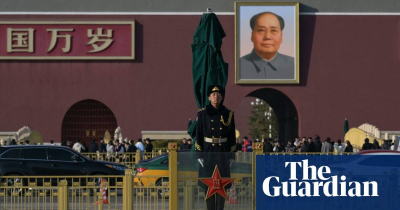The Guardian-China Two Sessions premier Li Qiang will not speak to press in break with tradition
March 4, 2024 4 min 729 words
这则报道揭示了中国两会开始时,中国总理李强将不再与媒体交流的新情况。这一举动背离了过去的传统,给外国媒体失去与高层官员对话的难得机会。面对经济困境、政府数据透明度减少以及国际商界和投资者的担忧,此举引起了人们的关注。对于外界关切的政府高层变动,发言人透露国务院和中央军委的空缺将暂时保持,未在两会期间宣布人事任命。同时,对于新的反间谍法和国际商界的担忧,发言人强调这是对法律误解的批判,坚称中国仍致力于改革开放。这则报道突显了中国在内外事务上的变革和对外界关切的回应,增添了两会的复杂性和引人瞩目的议题。
China’s major annual political gathering has begun in Beijing, to discuss and approve the ruling Chinese Communist party’s policy direction for the year.
But amid major economic headwinds, decreasing transparency on government indicators, and growing concern among international business and investors, on Monday it was revealed the country’s leading economics official, premier Li Qiang, would no longer meet with or speak to the press.
The Two Sessions are so named for the near-simultaneous gathering of two political bodies: China’s rubber-stamping parliament, the National People’s Congress (NPC), and the political consultative body, the Chinese People’s Political Consultative Conference (CPPCC). Attended by thousands of delegates and journalists, the meetings set and reveal the national agenda for the all-powerful CCP.
They are highly orchestrated, and all public engagements stick closely to the party’s policy and political narrative.
At a press conference on Monday, spokesperson for the NPC, Lou Qinjian, revealed that in a break with tradition, Li would not give a press conference at the end of the meeting, or at any of the NPC sessions this year. The press conferences were one of the few opportunities for foreign press to engage with the high ranking official.
Lou also revealed that current vacancies in the state council – China’s cabinet – and central military commission will remain vacant for some time, with no personnel appointments to be announced during the Two Sessions.
Speculation around the fates of Qin Gang, the former foreign minster, and Li Shangfu, the former defence minister, has swirled since the two men were mysteriously removed without explanation, leaving vacancies on the state council. Li’s vacancy may be filled by his replacement as defence minister, Dong Jun. But it is far from certain that Dong or any new foreign minister – as Qin’s predecessor Wang Yi is thought to have returned only temporarily – will be appointed to the state council.
Lou also addressed recent changes to espionage laws which have drawn concern from the international business community, over broadened definitions and bans on the transfer of any information related to “national security”. Law enforcement raids and arrests, including on due diligence analysis firms, have sparked warnings of increased risk to foreign businesses and their employees in China.
But at Monday’s press conference he said this was a “misinterpretation of the counter-espionage law” which “denigrated” China, and that China was still committed to “reform and opening up”, particularly to business exchange and cooperation.
“Based on common international practices … it has actually refined the definition of espionage activities and made clear the line between legal and illegal activities.”
“It does not target normal business activities, research work, or professional exchanges,” Lou said. “China’s door remains open to the world and its door will not shut.”
Asked about China’s defence budget, given increasing tensions in the South China Sea and the Taiwan Strait, the spokesperson said only that a draft would be reviewed by the NPC.
He said China had made reasonable and steady growth of defence spending, in line with defence capability and economic strength.
“China is committed to the path of peaceful development,” he said.
Lou also dismissed criticism of China’s increasingly aggressive behaviour in the region, particularly in the South China Sea – over which it holds massive and widely disputed territorial claims – saying China was a good neighbour and cooperative friend.
The CPPCC opens on Monday and the NPC opens on Tuesday. All events will wrap up by the 11 March.
On Sunday a CPPCC spokesperson, Liu Jieyi, said that “economic topics are of great concern” to the body’s over two thousand members.
So too was “the employment of young people, especially fresh graduates”, he said, with youth unemployment officially at about 15% at the end of 2023, after the statistics bureau adjusted its calculation methods.

